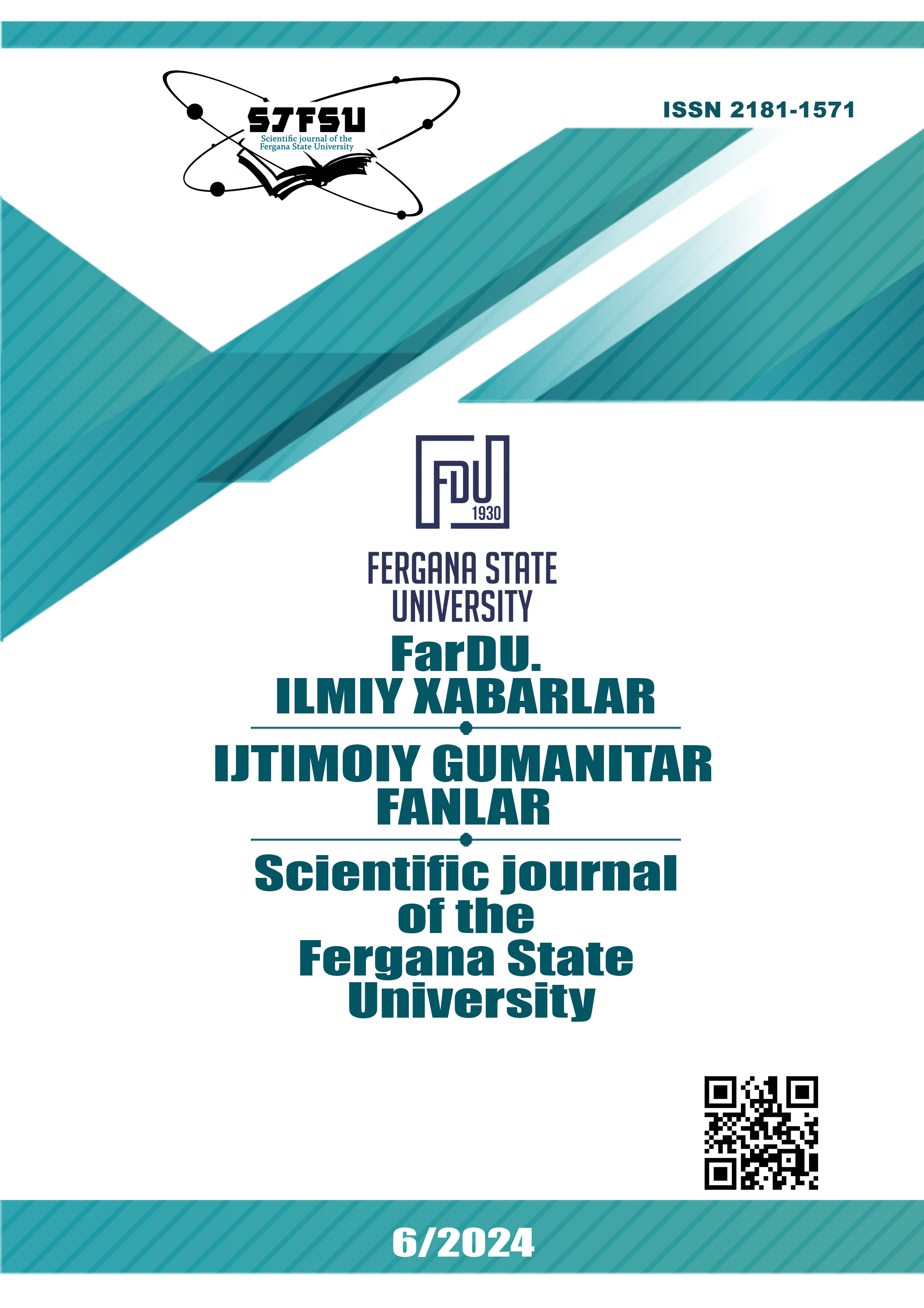MULTI-ASPECT NATURE OF ENGLISH AND RUSSIAN PROVERBIAL PHRASEOVERBALIZERS OF THE CONCEPT "HEAD/ГОЛОВА/ГЛАВА" AND THEIR LINGUOSTYLISTIC FEATURES
Abstract
The article is devoted to the study of lexical ways of verbalizing the concept "head/голава/жла" in English and Russian. The work considers the main lexemes expressing this concept, as well as their semantic features and variability in context. The analysis is carried out on the material of stable expressions, metaphors and phraseological units, demonstrating cultural and cognitive differences in the use of the concept "head" in two languages. Particular attention is paid to the differences in metaphorical models and figurative meanings, which allows for a deeper understanding of the relationship between language and thinking.
References
СПИСОК ИСПОЛЬЗОВАННОЙ ЛИТЕРАТУРЫ
Бакиров П.У. Номинацентрические пословицы (на материале русского, узбекского и казахского языков: Автореф. дисс. ... докт. филол. наук. – Ташкент, 2007. – 54 с.
Маджидова Р.У.Аксиологическое исследование антропоцентрических пословиц (на материале узбекского и русского языков). Докт. дисс. (Dsc) по филологическим наукам, Фергана – 2020. -270 с.
Паремиология.https://ru.wikipedia.org/wiki/%D0%9F%D0%B0%D1%80%D0%B5%D0%BC%D0%B8%D0%BE%D0%BB%D0%BE%D0%B3%D0%B8%D1%8F.
Сайфуллина Э.Р. Когнитивная сфера русских и татарских паремий: «образ языка» и нормы речевого поведения: Автореф. дисс… канд. филол. наук. – Уфа, 2009. –28 с.
Хажокова Р.А., Хажокова Э.А. Сравнительно-сопоставительный анализ пословиц и поговорок, выражающих отношение к женщине в русской и французской лингвокультурах. // Научный альманах. – Тамбов, 2015. – № 11-5 (13). – С. 382-386;
Хошимов М.Г. Сложновводное предложение как инвариантный тип предложения в языке.Дисс.докт.филос. по фил. наукам. Фергана, 2022.- 254 с.
Усаров И.К. Проблемы общей стилистики сложных предложений. .Автореф. дисс. на соиск. уч.степ. канд.филол. наук, Ташкент, 2004, с. 8.
Шаймарданова М.Р. Прагмалингвистический анализ гендерно-маркированных паремий (на материале английского и русского языков): Автореф. дисс. …канд. филол. наук.– Казань. - 27 с.
Юсупжанова Ф.К. Пословицы и поговорки, вербализующие концепт “голова “ в языках разной типологической принадлежности// Umumiy, аntropotsentrik, raqamli tilshunoslik, adabiyotshunoslik va til o’qitish metodikasining dolzarb muammolari. Xalqaro ilmiy-amaliy anjuman materiallari, 588-597.
Downloads
Published
Issue
Section
License
Copyright (c) 2024 Scientific journal of the Fergana State University

This work is licensed under a Creative Commons Attribution-NonCommercial-NoDerivatives 4.0 International License.

